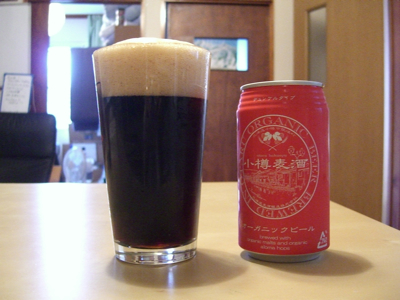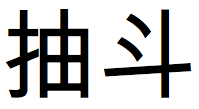(Updated with links to books on Amazon Japan because I was lazy on Friday. Used copies of 夜のくもざる going for 1 yen!)
I’ve read 450+ Japanese pages over the past week, probably more than double the amount I read over the previous two months, and I can feel a tangible improvement in my spoken Japanese. Yes, you read that correctly. Spoken Japanese. I’m sure that my reading abilities have gone up, which makes sense, but over the last few days I’ve also noticed that phrases and patterns seem to come to me more quickly than they did last week. A couple of thoughts about this phenomenon and reading in general:
– At some point you have to make the leap. Once you have some kanji under your belt, you need to put down the dictionary and start reading for length of time and volume rather than complete understanding. Why length of time? You need to train your eyeballs to read vertically. When you first start reading vertically, you’ll actually be zig-zagging slightly to the left and right as you take in the characters. One of my Japanese teachers said this is why your eyes get tired more quickly at first. The more time you spend reading, the faster your eyes will train themselves to recognize kanji without straying from the invisible center line. Why volume? It builds confidence. It’s important to feel like you’re making progress with reading. This doesn’t mean that you should stop looking up words (definitely look them up if it’s very important), but if you can get most of the meaning without looking up a word, then you can skip it. (This is, by the way, exactly what we all do in our native languages – context provides great usage examples and a lot of meaning.)
– As for why reading helps improve spoken Japanese, I’m not exactly sure. I like to think it’s because, magically, the grammar patterns are imprinted on my brain pudding, enabling it to function more naturally in Japanese. I’m sure this is the case to a certain extent. Perhaps the net effect of reading on speaking varies by person depending on how much they vocalize internally as they read. I don’t think I vocalize much at all (constantly skip over readings I understand but don’t know, probably swallow patterns in big chunks rather than word by word), but I still feel better about my spoken Japanese than I have in weeks. Mmm…brain pudding.
– There are limitations to this approach: for whatever reason my conversation topics are limited to religious cults, the NHK collection man, Czech classical music, and gin and tonics.
– Kanji shouldn’t be studied. Just keep reading and get used to them. Matt explains far more articulately here.
– Start with shorter material and work your way up to the big guns. If you try to start reading with Wind-up Bird Chronicle (or the Japanese translation of Pynchon’s V…I actually did look briefly at the translation before realizing I wasn’t going to pay $60 for a book that was difficult in English), you are setting yourself up for defeat. Start with some short stories. One of the best collections for beginners is Murakami’s 『夜のくもざる』(“Night of the Spider Monkey”), which is a collection of “super-short stories” (超短編小説). Each story is only 2-3 pages long, so you can get that “Whew, I finished reading” feeling without going for hours and hours. The one downside of this collection is that all the stories are weird. Like, super weird. Kaori Ekuni has a couple short story collections that might be good for first-time readers, one of which has the funny English title on the book “It’s not safe or suitable to swim” (『泳ぐのに、安全でも適切でもありません』). Anyone know any other good reads for beginners?
– In the end, though, nothing is as satisfying as reading a full length novel. Or at least a nice big fat story like an Akutagawa Prize winner. The first book I ever read from start to finish in Japanese was 『蹴りたい背中』(“The Back I Want to Kick”) by Risa Wataya who won the prize in 2004 when she was 18. Shortly thereafter I read 『蛇にピアス』 (“Snakes and Earrings”) by Hitomi Kanehara who shared the prize with Wataya. They aren’t all that long – I could probably finish them in half a day now – but they each took me several weeks to finish back then when I read at the pace of 5 pages a day. I looked up every word and there were many passages I wrestled with, but it was worth it. (I should admit that I was meeting with a professor once a week to go over any questions. She helped me out with a lot of the patterns I was unfamiliar with. Maybe if there are enough beginner readers around Tokyo we could start some sort of group. I’d be glad to lend a hand if anyone’s interested.)



